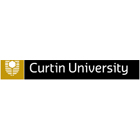Master of Digital and Social Media
Master of Digital and Social Media
Advances in digital technology have dramatically increased the demand for specialists in digital and social communication. A deep understanding of digital and social media is key to success across a range of professions, from media and marketing to policy-making and advocacy. This course provides the knowledge and skills you need…
Categories
COURSE DESCRIPTION
Advances in digital technology have dramatically increased the demand for specialists in digital and social communication. A deep understanding of digital and social media is key to success across a range of professions, from media and marketing to policy-making and advocacy.
This course provides the knowledge and skills you need to become an astute and professional online communicator.
You’ll develop advanced skills in creating, maintaining and managing online communications across web media, publishing and presence, online collaboration, and building and maintaining networks and virtual communities.
You will learn the fundamentals of online communications, including how to identify and understand emerging trends such as artificial intelligence, social media influencers, big data and online analytics.
You will explore how the internet is changing political systems, reshaping societies, cultures and economies, and how you can apply this knowledge in your workplace practice. You will have the opportunity to focus on specialist areas of communications and policy, content management, training and development.
In your final year you will undertake a research project and write a dissertation. When you complete the course, you may be eligible for doctoral-level studies.
You can choose to exit this degree earlier at the graduate diploma or graduate certificate level.
What jobs can the Digital and Social Media lead to?
Career opportunities
Data business analyst
Digital and social media manager
Digital producer/strategist
Online content creator
Web communications manager
Industries
Advertising, arts and media
Education and training
Governance, policy and regulation
Journalism
Marketing, public relations and communications
Industries
Advertising, arts and media
Education and training
Governance, policy and regulation
Journalism
Marketing, public relations and communications
What you’ll learn
Understand and apply at an advanced level key concepts of Internet Studies and apply transdisciplinary thinking to the application and creation of ideas concerning networked technologies of information and communication
Think critically, creatively and reflectively so as to imagine, design, use and critique networked technologies of information and communication
Conduct advanced scholarly and professional research to find, access, organise, evaluate and synthesise information through a variety of media and apply that information to the construction of knowledge
Communicate and facilitate communication through a variety of media, for different purposes, and for different audiences
Use the Internet and related networked technologies of information and communication with an understanding of the complex interaction of political, cultural, and economic forces that constitutes technology as social
Further develop skills and knowledge through independent research and self-directed learning
Understand and utilise in their research and work the complex interplay of local, national and global factors that influence and are expressed through the Internet and networked technologies of information and communication
Recognise and value cultural difference and understand its significance in relation to network technologies and their use in society for communication and information
Professional recognition
Our Digital and Social Media program is a member of the Internet Industry Association and the Internet Society (Australia).
REQUIREMENTS
Specifically, applicants require a 3 or 4 year bachelor degree in any field from a recognised tertiary education institution OR successful completion of 2 or more units in the Graduate Certificate in Digital and Social Media. Students who have completed more than 50 credits of Digital and Social Media or Internet Communications undergraduate units, or any previous versions at Curtin University are not eligible for entry to this course.
Certificate in Advanced English (CAE): Grade C; and Pearson Test of English Academic: 60. IELTS (International English Language Testing System) – Listening, Reading, Writing, and Speaking – 6.0; Overall band score 6.5; TOEFL (Test of English as a Foreign Language) 79 (overall) Reading 13 Listening 13 Speaking 18 Writing 21.
EDUCATIONAL INSTITUTION
Curtin University is Western Australia’s largest and most culturally diverse university with Australia’s third largest international student population. Around 60,000 students from more than 130 countries study a Curtin degree, at locations including Perth, Margaret River, Kalgoorlie, Sydney, Malaysia and Singapore. Our cultural diversity adds a rich and valuable dimension to the campus atmosphere, preparing all graduates to live and work effectively in an increasingly global environment. We offer a range of industry-aligned undergraduate and postgraduate courses in business, humanities, health, engineering and related sciences. We also have a long-standing focus on Aboriginal and Torres Strait Islander education and culture, supported by our Centre for Aboriginal Studies.Curtin is widely recognised for its practical research that is focused on solving timely, real-world problems. In recent years our research activity has grown significantly, driving our rapid rise up the international university rankings.As a university that never settles, we will continue to develop existing partnerships and establish new ones in areas relevant to our research and teaching.




